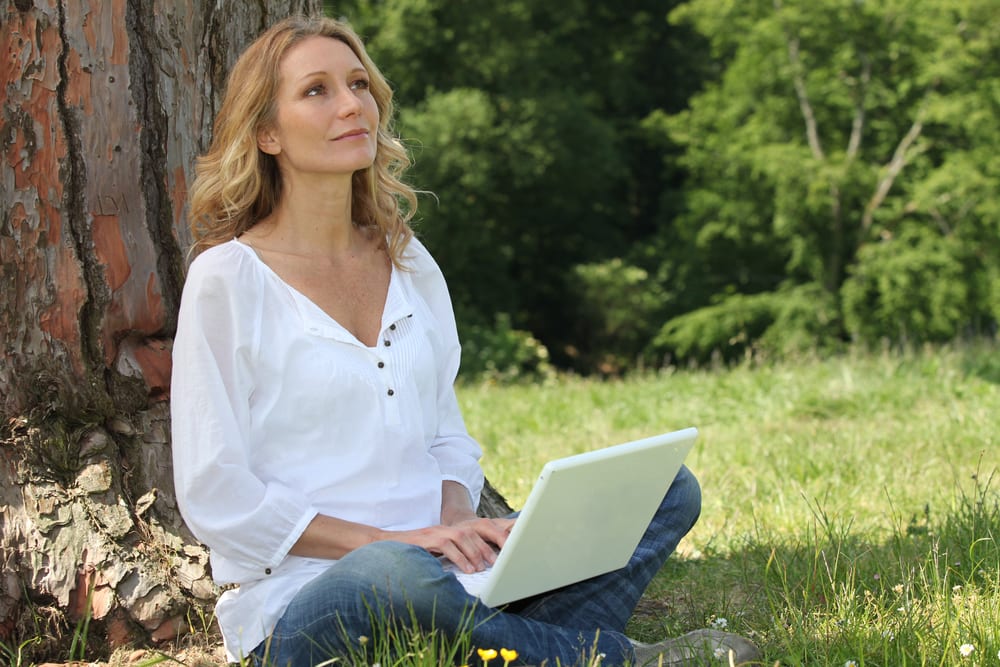How do you find time to really think? How do you make space for ideas? Intuition is a critical part of being innovative. But forget about feminine intuition, the sad fact is that women’s business and parenting ambitions often peak at the same time. Too often there’s little time left for the relaxed and ‘mindful’ thinking which is so important for creativity. Women often learn to survive by ‘juggling’ our lives. Without a few fancy tricks it seems like we’d never be able to do it all.
Relaxed attention
But the fact is, the busier we are the less creative we tend to be. The best ideas pop-out in downtime – usually when you’re doing something else. The top five places to have great ideas, according to research are:
- In the shower
- Driving
- Walking
- Exercise
- Bed
Those are activities most of us do every day. Anecdotally, the shower is top of them all. My hunch is that’s because it brings in a bit of creativity – don’t tell me you’ve never sung in the shower! Less universal creative activities are powerful too – cooking, sewing and art. Laughter and fun ease things along. In all of those cases our attention is relaxed, leaving space for day-dreams to slip in.
Mindfulness
You can cultivate a higher level of relaxed attention by learning to become mindful. “Mindfulness means paying attention in a particular way – on purpose, in the present moment, and non-judgmentally,”according to leading mindfulness expert and author Jon Kabat-Zinn.
Focusing on one thing at a time is much more effective than juggling several things at once. Streamlining your thoughts increases productivity. Small niggles and worries fall away, leaving you more time to focus on what really matters.
Being present means that we get more pleasure from everyday things in our lives. Those are the things that ultimately matter most: friends and family, relationships and the impact that our approach to food and exercise has on our health.
Work that is done in a purposeful, focused way is also a lot more satisfying. In fact a mindful approach to work is the essential underpinning to what’s called ‘flow’ – “the holistic experience that people feel when they act with total involvement” according to Csíkszentmihályi who came up with the concept in 1975. As well as focused concentration ‘flow’ activities need a high degree of ability and autonomy.
When it all comes together, the resulting flow is very often the highest level of attainment for creative people. It’s a state that top athletes, designers and writers aspire to. It is when they do their finest work. And each experience of flow pushes them on to stretch their skills and abilities even further. Flow is also something that many people achieve through arts and crafts. Julie for example developed a hobby using timber to create garden furniture that helped her to really unwind, forget her other stresses as well as create something beautiful and useful.
A mindful approach to life and work starts with identifying what matters most, prioritising that and then giving everything you do your full attention. Here are a few steps that you can take to start to become more mindful:
1. Go for a walk in a park or the countryside
Give nature your full attention; notice the colours, textures and shapes of trees and plants. Engaging with the beauty of nature is uplifting; it also lowers blood pressure and calms the mind.
2. Do one thing at a time
We are more likely to make mistakes when we’re multitasking and it’s ultimately less efficient. So forget about juggling. Instead do one thing well before moving on to the next task.
3. Focus on what you’re doing
Whether you are sweeping the floor, writing a report or putting a child to bed, give that task your full attention. Fully enjoy the task and do it as well as you can. Even housework can become a form of meditation if it’s done mindfully.
4. Clear out the clutter
A cluttered room or desk can quickly lead to a cluttered mind. Use cupboards and drawers to organise your things out of sight until you need them. De-clutter your computer screen as well, switch off adverts and noise. Make sure just one window on your computer is open at a time.
5. Be present
If you are talking to someone, really listen to every word they say. You will both have a richer and more satisfying experience.
6. Be with the kids
Have you ever seen those parents in the park, pushing their child on a swing with one hand while they talk business on their phone? The child starts to cry, looking for attention, the parent becomes more stressed. Nobody is happy. Children blossom when you give them your full attention and their delight is contagious. Enjoy the moment.
7. Savour food
Take your time and appreciate every mouthful of whatever you are eating or drinking. Always eat at a table and make eating a pleasurable ritual and occasion. You will enjoy your food more, eat less and have better digestion.
8. Meditate
Mindful meditation is about being in the moment. It’s about slowing down our thinking, not reacting or judging – just letting the noise of the day trickle by. The results are powerful. It is proven to improve health, wellbeing, and quality of life. And in just a few weeks of practice it positively changes the structure of the brain – reducing stress, ego and distraction.
Making the space
So, are you busy going nowhere special? Is it time to change gear? The key is to start with the values that matter most to you, then begin to fit your life together around those priorities. Calm the noise. Be mindful. Have fun. Be true to yourself. When the space is ready, the ideas will appear.

